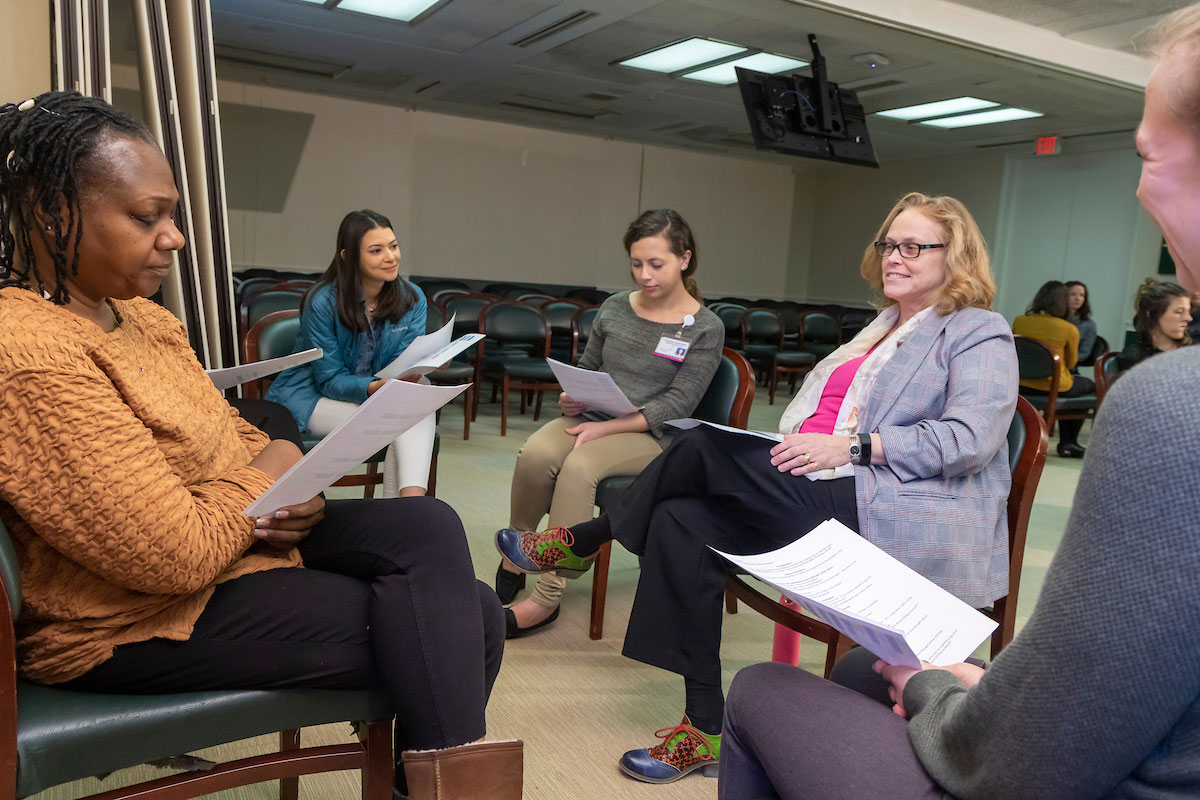A fundamental element of the Zero Suicide Initiative at the Behavioral Health Network is developing a competent, caring workforce, which includes training staff to identify and intervene with people in crisis and compassionately supporting staff after a suicide death.
To achieve this goal, a dedicated team was developed and implemented a BHN-specific, case-based, experiential training course called the Suicide Assessment Module (SAM) to help clinicians assess suicide risk. After developing content for one year, SAM launched at the Institute of Living (IOL) in 2017. In late 2018, its reach broadened across the BHN. Since then, more than 400 employees representing six BHN entities have been SAM trained, and a 2020 calendar of four-hour training sessions and new two-hour refresher classes is available for identified clinical staff. (In the photo above, role-playing is used as part of the training.)
“SAM trainings impart practical and effective suicide interviewing skills that clinical staff can use alone or with assessment methods such as the Columbia Suicide Severity Rating Scale,” said Jennifer Ferrand, PsyD, ABPP, a clinical psychologist and operational leader of the BHN Zero Suicide implementation team.
Staff response to the trainings – which have targeted physicians, psychologists, social workers, nurses and other clinicians – has been positive.
“SAM has been an extremely valuable tool assessing patients in the Emergency Department. When clinicians and I are collaborating, it helps us zero in on risk issues and understand exactly where a patient’s thoughts have been. This is invaluable in helping us develop the best possible plan for each patient,” said Sharon Langlois, APRN, of the Emergency Department.
Laura Bracale, APRN, added, “SAM training has been helpful with communication; we have a language to identify and discuss patients we recognize as higher risk. When a clinician says she used SAM training when interviewing a patient, I know the depths of the interview and trust the findings.”
The goal, according to Dr. Ferrand, is to offer SAM training to all identified clinical staff and trainees when they start working at a BHN entities, with a refresher course every other year after. Rushford, she noted, already created suicide-prevention training for all new hires.
The implementation committee also plans to develop training materials specific for systemwide onboarding and annual employee reviews, launch CALM training and establish expectations for lethal means counseling, and broaden the scope of suicide prevention training to include all medical areas.
Anyone interested in SAM training should speak to a clinical supervisor to determine whether the training is relevant. Clinical supervisors can sign staff up for trainings or refreshers through HealthStream, or ask staff to self-enroll. The classes are free and CME credits are available. For more information, contact Coordinator Laura Majidian at 860.545.7324 or Laura.Majidian@hhchealth.org.

